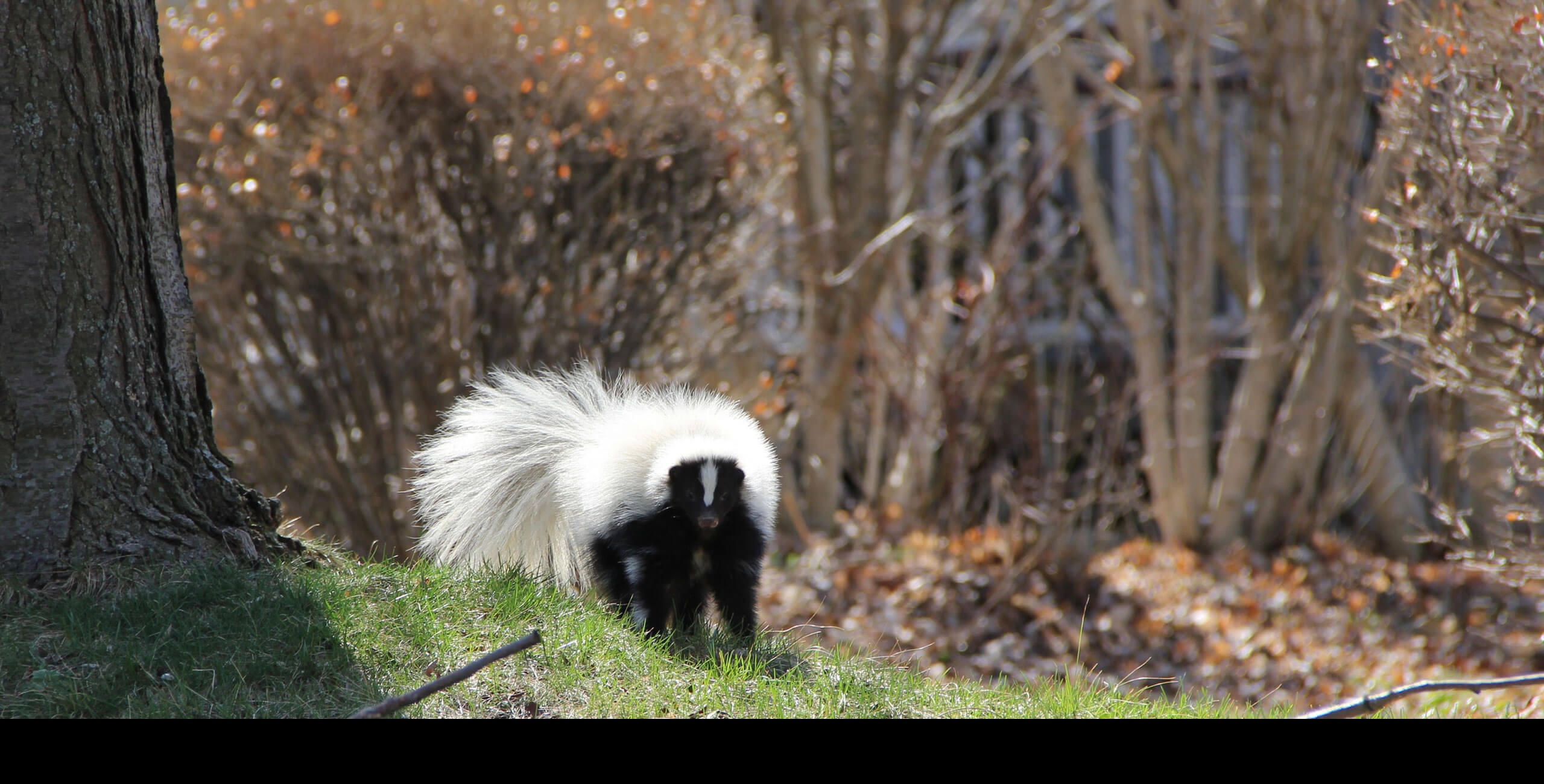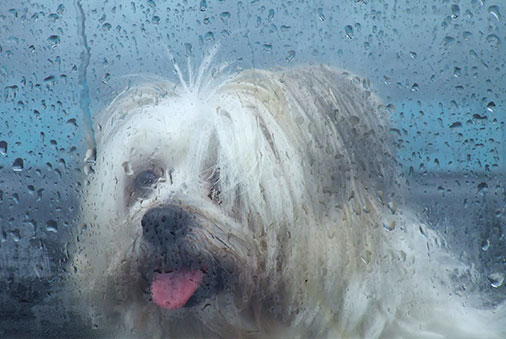Striped skunks in particular choose springtime to birth their “kit,” which means more naïve little thieves scavenging through your garbage. So, what’s the best way to stop these marauders and keep their spray at bay?
Tips to pre-empt the spray
- Spotlight skunks with floodlights in your yard so you can see them and shoo them away before you let your dog or cat outside.
- Skunks can spray about 15 feet so if you spot one further away, quietly call your dog to come inside; if the skunk doesn’t feel threatened he probably won’t spray.
- Put your trash bin out just before pick-up; secure garbage lids with bungee cords and barricade compost bins so they’re critter proof.
- Pet food can be a wildlife delicacy so avoid feeding your pets al fresco; it’s safer to keep their food and water bowls inside.
- Secure openings in porches and sheds to close off potential nooks and crannies to mother skunks.
- Use bird feeders that avoid spilled seeds.
- Don’t leave human or pet food out for neighborhood pets.
Post-spray solutions
- Find an isolated area outside where you can treat your pet ASAP without scaring him even more.
- Wear old clothing and rubber gloves to protect yourself.
- Before treating your buddy, reassure and calm him; the spraying may have traumatized him even more than you.
- Gently rinse your dog’s or cat’s eyes with cool water if they’re red.
- Wash your pet’s entire body (avoiding his eyes); use one quart of 3% hydrogen peroxide (available at drugstores) with ¼-cup baking soda and one teaspoon of liquid dishwashing soap. Rinse your pet’s fur thoroughly after to avoid bleaching from the peroxide.
- Alternate remedies: Vinegar diluted with water. Not the old wives’ tomato soup recipe, which only masks the odor instead of disabling the chemical that causes skunk odor. The Washington Department of Fish and Wildlife recommends using products with the non-toxic ingredient Neutroleum Alpha; the Humane Society suggests Nature’s Miracle Skunk Odor Remover.
- After the initial cleansing, bathe your buddy with pet shampoo, rinse his fur thoroughly, towel him dry and let him rest in a warm space.
- Wash the smell off your clothes with regular laundry detergent mixed with ½-cup baking soda; repeat if necessary. The hydrogen peroxide solution is also safe as a detergent but may bleach clothing.
- Boil vinegar in a pan to remove any stench from the household air. Wash outside decks, porches and building exteriors, with a cup of liquid bleach mixed in a gallon of water, and rinse surfaces immediately to prevent fading from the bleach.
- Lather your own skin with the hydrogen peroxide solution for five minutes or until it stops bubbling. Shower with soap and shampoo as usual.
- Don’t bottle any leftover anti-skunk solution! The chemical reactions can make it explode so dilute any extra homemade solution with water and pour it down your drain.
If treated right away, getting sprayed by a skunk can be remedied as untraumatically as possible, and provide plenty of story-telling mileage. It also puts cat spraying in perspective.





